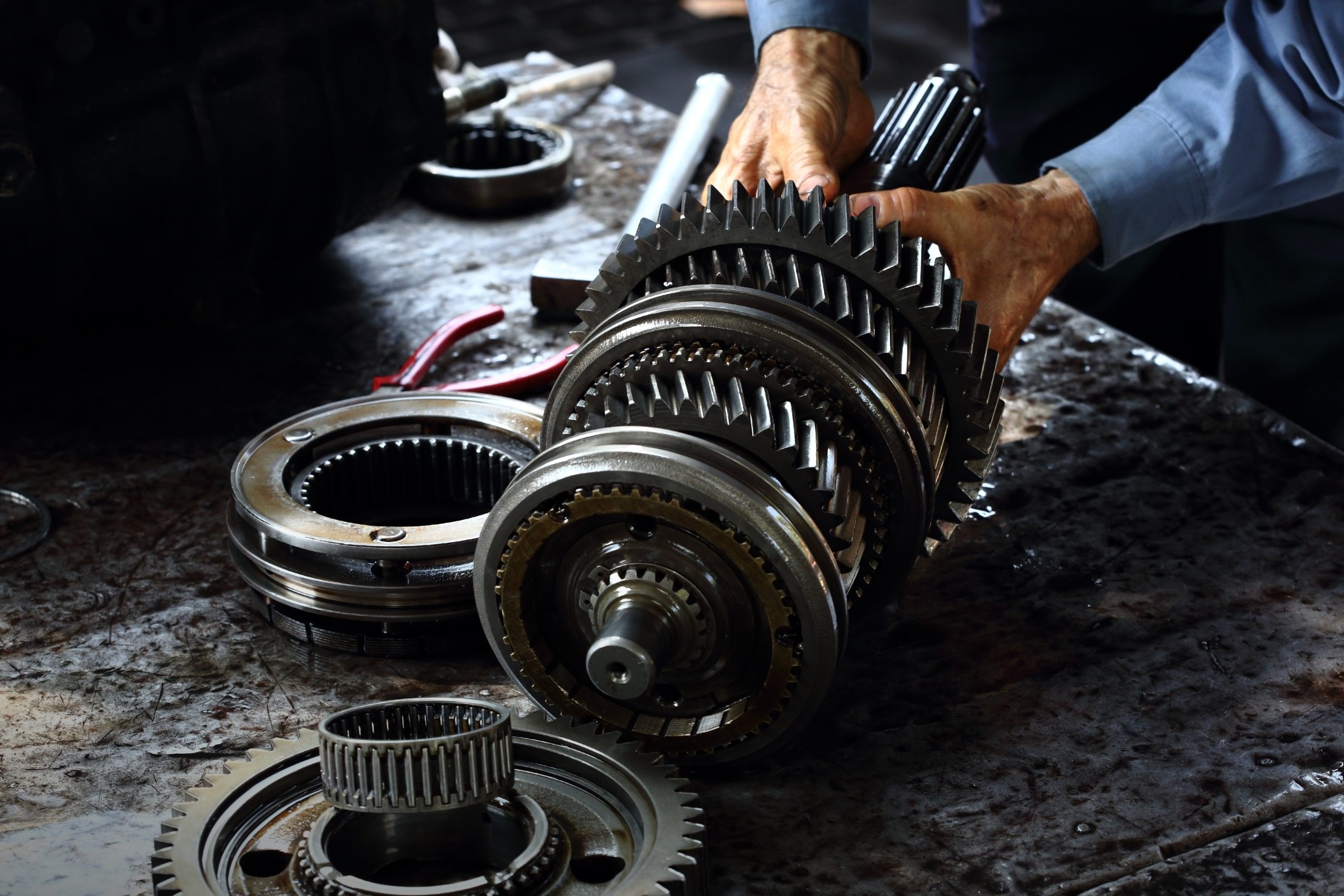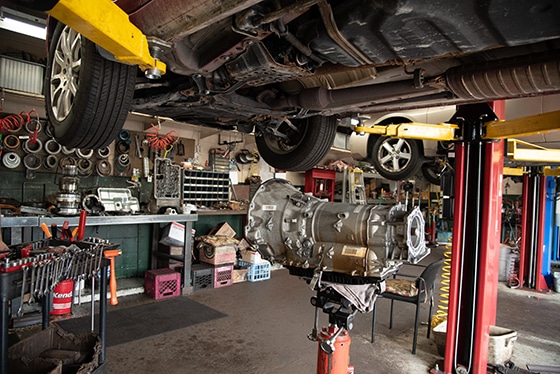Transmission Repair Triad Area Mastery: Where Quality Meets Unmatched Service
Wiki Article
Common Indicators of Transmission Problems and What You Can Do About Them
Transmission issues in lorries can cause considerable aggravation and possible safety and security dangers. Acknowledging the common indications of transmission issues can aid you resolve them quickly and prevent further damages or expensive repair services. This short article will certainly talk about a few of the common indication, such as weird noises, trouble changing gears, burning scents, liquid leakages, and delayed involvement. By being conscious of these indications, you can take ideal action to stop more damage to your transmission and make sure the smooth procedure of your vehicle. Whether it's looking for expert assistance or taking precautionary actions, understanding these indicators equips you to make enlightened decisions and keep the durability of your vehicle's transmission.Unusual Noises
One common indicator of transmission problems is the occurrence of odd sounds, which can indicate underlying problems that need prompt attention. These unusual noises can differ in nature and intensity, and they usually serve as an indication that something is amiss with your lorry's transmission system.One of the most common strange noises connected with transmission troubles is a grinding noise. This sound generally occurs when changing equipments and can suggest worn-out gears or a lack of transmission fluid. Neglecting this sound can lead to additional damages to the transmission system, leading to expensive repair services.
It can suggest low transmission liquid levels or a failing pump. Resolving this problem immediately can protect against additional damage to the transmission and expand its life-span.

Ultimately, a clunking or banging sound can also be a cause for issue. This noise is typically listened to when shifting gears or during velocity and slowdown. It can symbolize broken or worn-out transmission places, which can lead to the transmission ending up being misaligned or separated.
Difficulty Shifting Gears
If you experience difficulty changing equipments in your automobile, it might be an indication of transmission troubles. Trouble shifting equipments can manifest in different means, such as grinding, sliding, or hesitation when changing equipments. This concern can happen in both automated and hand-operated transmissions and should not be neglected, as it might lead to additional damages and pricey repairs if not attended to quickly.One feasible source of trouble shifting gears is low transmission liquid levels. Insufficient fluid can hinder the smooth operation of the transmission, making it tougher to involve the equipments properly. transmissions Triad Area. Checking the fluid level and including even more if essential may reduce the problem.
An additional possible wrongdoer is a used clutch or clutch elements in hands-on transmissions. Over time, the clutch can become used, bring about troubles in moving gears smoothly. In such situations, changing the used clutch or its parts might be required to restore correct shifting.
In transmissions, troubles moving equipments can be brought on by issues with the valve body or solenoids. The shutoff body manages the flow of transmission fluid, while the solenoids manage the pressure required for equipment modifications. If these elements become damaged, it can lead to gear shifting issues. In such circumstances, seeking specialist assistance is encouraged to identify and fix the issue.
Burning Odor
A burning odor is a clear go to this site indicator of potential transmission issues. If you see a burning scent coming from your lorry, it is crucial not to ignore it as it might be a sign of a serious problem with your transmission. The transmission is responsible for transferring power from the engine to the wheels, and any type of issues with it can influence the performance and security of your lorry.There are several prospective causes for a burning odor in your transmission. One usual reason is overheating, which can occur because of reduced transmission fluid levels or a malfunctioning cooling system. Friction between the relocating components of the transmission can also produce warm and cause a burning odor. Additionally, damaged clutch plates or sliding clutches can More Bonuses generate a burning smell.
If you find a burning scent, it is essential to attend to the problem immediately. Overlooking it can bring about further damage to your transmission and costly repairs. The first step is to inspect the transmission fluid degree and problem. If it is reduced or has a charred scent, it might be needed to replace or fill up the fluid. If the trouble continues, it is recommended to seek specialist aid from a qualified mechanic that can identify and fix the underlying concern. Bear in mind, early discovery and treatment can stop much more significant troubles down the line.
Fluid Leakages
Fluid leaks are a common sign of transmission issues and should be attended to promptly to stop more damage. Transmission liquid plays an essential duty in the smooth procedure of a car's transmission system. It additional reading oils the moving parts, cools the transmission, and gives hydraulic pressure for gear changes. Any type of leak of this liquid can lead to significant issues and prospective failing of the transmission.The fluid may have a distinct burnt scent or a sweet odor, depending on the type of transmission liquid made use of. Furthermore, low transmission liquid levels can cause problems such as sliding equipments, postponed or erratic changing, or unusual sounds coming from the transmission.
When faced with a liquid leak, it is essential to take instant action. Usual areas where leakages happen include the transmission frying pan gasket, result shaft seal, input shaft seal, and transmission colder lines.

Delayed Interaction
One typical indication of transmission troubles is a postponed involvement, which can be an indicator of underlying concerns that call for instant focus. When moving equipments or when the lorry takes longer than common to react to the motorist's input, delayed involvement refers to the hold-up experienced (Triad Area transmission shop). This can materialize as a jerking or a reluctance movement when trying to increase from a complete quit.There are several prospective reasons for postponed interaction. One possibility is reduced transmission fluid levels, which can protect against the transmission from running appropriately. Another reason can be used or damaged clutch plates, which might call for replacement. Furthermore, a defective solenoid or a malfunctioning valve body might also lead to postponed engagement.
If you're experiencing delayed engagement, it is crucial to resolve the problem without delay. Neglecting it can lead to further damages to the transmission and more costly repair work down the line. The initial action is to check the transmission liquid degrees and ensure they go to the ideal level. Including more might fix the problem if the liquid is low. If the problem persists, it is recommended to speak with an expert auto mechanic that can identify and fix the underlying cause of the delayed interaction.
Conclusion
To conclude, recognizing common signs of transmission problems such as odd sounds, difficulty shifting gears, burning smell, fluid leakages, and delayed interaction is critical for keeping a well-functioning vehicle. By immediately resolving these concerns, people can protect against more damages and pricey fixings. When required will certainly make sure the smooth procedure of the transmission and lengthen the life-span of the automobile., routine maintenance and looking for specialist assistance.It can represent damaged or worn-out transmission places, which can lead to the transmission coming to be misaligned or detached. (transmission shop Triad Area)
Transmission liquid plays a vital duty in the smooth operation of a vehicle's transmission system. In addition, reduced transmission fluid levels can trigger problems such as sliding equipments, postponed or irregular moving, or strange sounds coming from the transmission.
Typical areas where leakages happen include the transmission pan gasket, output shaft seal, input shaft seal, and transmission colder lines. One possibility is reduced transmission fluid degrees, which can prevent the transmission from running appropriately.
Report this wiki page